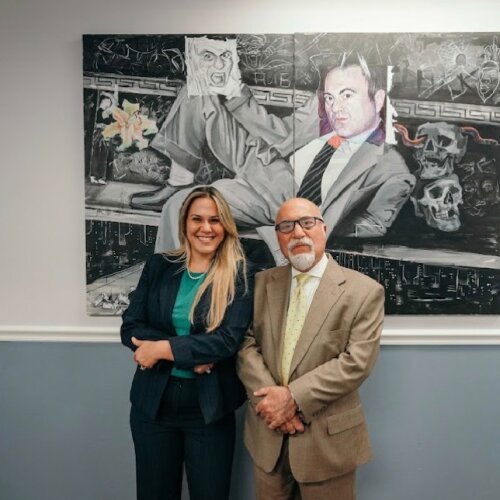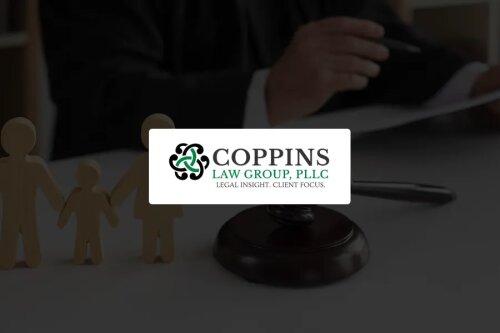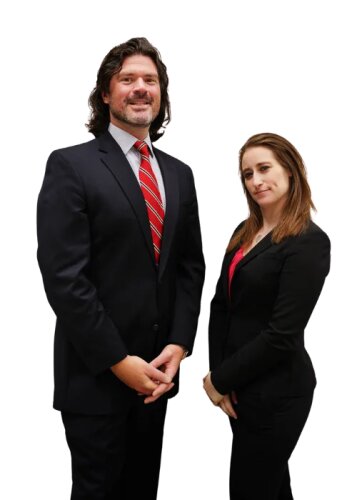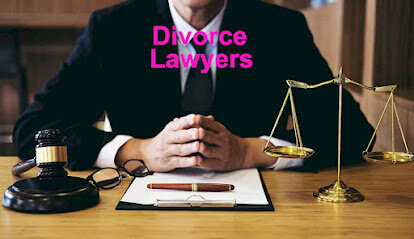Best Adoption Lawyers in New York
Share your needs with us, get contacted by law firms.
Free. Takes 2 min.
Free Guide to Hiring a Family Lawyer
Or refine your search by selecting a city:
List of the best lawyers in New York, United States
About Adoption Law in New York, United States
Adoption in New York is a legal process that creates a permanent parent-child relationship between individuals who are not biologically related. This process terminates the rights of the child's birth parents and assigns those rights to the adoptive parents. Adoption can provide a safe, loving home for children and offers adults the opportunity to build or expand their families. New York has specific statutes and rules governing the adoption process, aiming to safeguard the best interests of the child while ensuring the legality and integrity of the adoption.
Why You May Need a Lawyer
Adoption law is often complex, involving detailed procedures, significant paperwork, and potential court appearances. People may need a lawyer for several reasons including:
- Understanding the different types of adoption, such as agency adoptions, private adoptions, step-parent adoptions, or adult adoptions
- Ensuring compliance with New York's legal requirements for adoption
- Assisting with interstate or international adoptions, which introduce additional legal complexities
- Dealing with contested adoptions, where a biological parent or another party objects
- Guiding through the Home Study process and background checks
- Managing special circumstances, such as adopting a relative or a foster child
- Drafting and reviewing adoption agreements and documents
- Representing clients in court hearings related to the adoption process
- Protecting the rights of all parties involved, including adoptees, birth parents, and adoptive parents
- Assisting with post-adoption issues, such as records access or name changes
Local Laws Overview
New York law allows most adults-including single people and married couples-to adopt, as long as they meet eligibility requirements. Some of the key aspects include:
- Both private and public agency adoptions are permitted
- The consent of the child’s biological parents is generally required, except in cases where parental rights have been terminated
- Children over the age of 14 must consent to their own adoption
- Adoptive parents must undergo a Home Study, including background checks and home inspections
- There are regulations governing the payment of expenses to birth parents or agencies
- New York does not require adoptive parents to be residents of the state, but some agencies may have their own preferences
- The court system plays a central role in finalizing adoptions through a legal hearing
- Records of the proceedings are generally sealed for confidentiality
- Adoptive parents can adopt regardless of sexual orientation or marital status
- There are special rules for adopting stepchildren, foster children, or relatives
Frequently Asked Questions
Who is eligible to adopt in New York?
Most adults-including single adults, married couples, and unmarried couples-are eligible to adopt in New York if they pass the required background checks and Home Study.
How long does the adoption process usually take?
The process can take several months to a year or more depending on the type of adoption, agency involvement, and any legal complications.
Do I need the consent of a child's biological parents?
Generally, yes. The consent of the biological parents is required unless their rights have already been terminated by a court.
Can same-sex couples adopt in New York?
Yes. New York law allows same-sex couples to adopt children under the same conditions as opposite-sex couples.
What is a Home Study?
A Home Study is an evaluation process that includes interviews, home visits, background checks, and references to assess the suitability of prospective adoptive parents.
What are the types of adoption available in New York?
You can pursue agency adoption, private placement adoption, foster care adoption, step-parent adoption, or adult adoption in New York.
Are adoption records open to the public?
No. Adoption records are generally sealed in New York to protect the privacy of all parties involved.
What rights do adoptive parents have?
Once an adoption is finalized, adoptive parents have all legal rights and responsibilities as if the child were born to them.
Can I adopt a child from another state or country?
Yes, but you must comply with both New York laws and the laws of the other jurisdiction, which may require additional legal procedures.
How can a lawyer help with the adoption process?
A lawyer can guide you through legal requirements, draft and review documents, represent you in court, and help resolve any disputes that may arise.
Additional Resources
If you require more information or assistance, consider reaching out to:
- New York State Office of Children and Family Services (OCFS) - Oversees adoption services and regulations in New York
- Family Court in your county - Handles the legal process for adoptions
- Accredited private adoption agencies - Provide resources and support for adoptive families
- Legal Aid organizations - Offer help for those who may not afford private counsel
- Local bar associations - Can provide referrals to qualified adoption attorneys
Next Steps
If you are considering adoption or need legal advice regarding adoption in New York, it is important to take the following steps:
- Determine the type of adoption you wish to pursue and gather relevant personal and family information
- Contact a qualified adoption attorney to discuss your specific circumstances and receive guidance on your rights and responsibilities
- If using an agency, contact reputable local or state-licensed agencies for their procedures and requirements
- Prepare for the Home Study and collect all documentation required
- Attend any required training or counseling sessions, as suggested by your agency or lawyer
- Follow all legal procedures and deadlines to ensure a smooth adoption process
Consulting with an experienced lawyer from the start can help you avoid delays or complications and protect the best interests of all involved in the adoption process.
Lawzana helps you find the best lawyers and law firms in New York through a curated and pre-screened list of qualified legal professionals. Our platform offers rankings and detailed profiles of attorneys and law firms, allowing you to compare based on practice areas, including Adoption, experience, and client feedback.
Each profile includes a description of the firm's areas of practice, client reviews, team members and partners, year of establishment, spoken languages, office locations, contact information, social media presence, and any published articles or resources. Most firms on our platform speak English and are experienced in both local and international legal matters.
Get a quote from top-rated law firms in New York, United States — quickly, securely, and without unnecessary hassle.
Disclaimer:
The information provided on this page is for general informational purposes only and does not constitute legal advice. While we strive to ensure the accuracy and relevance of the content, legal information may change over time, and interpretations of the law can vary. You should always consult with a qualified legal professional for advice specific to your situation.
We disclaim all liability for actions taken or not taken based on the content of this page. If you believe any information is incorrect or outdated, please contact us, and we will review and update it where appropriate.
Browse adoption law firms by city in New York
Refine your search by selecting a city.
















